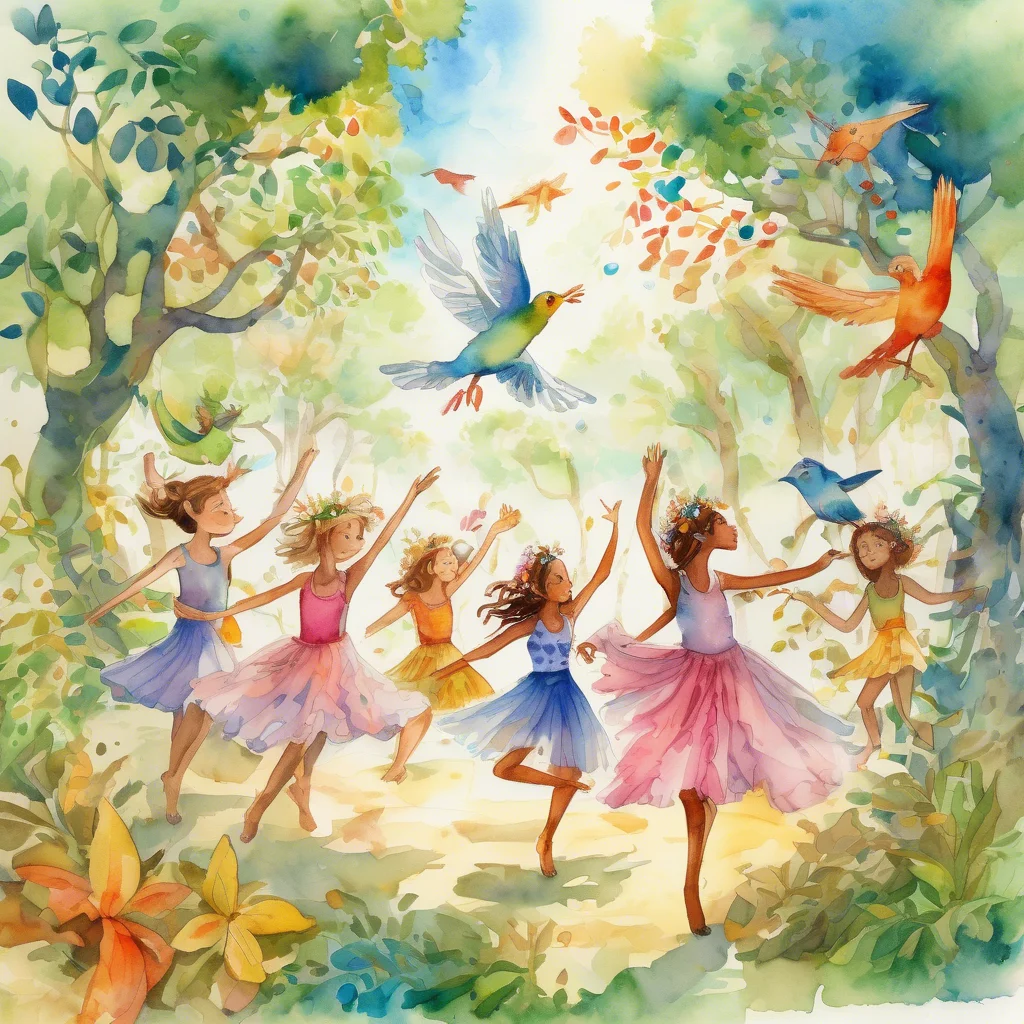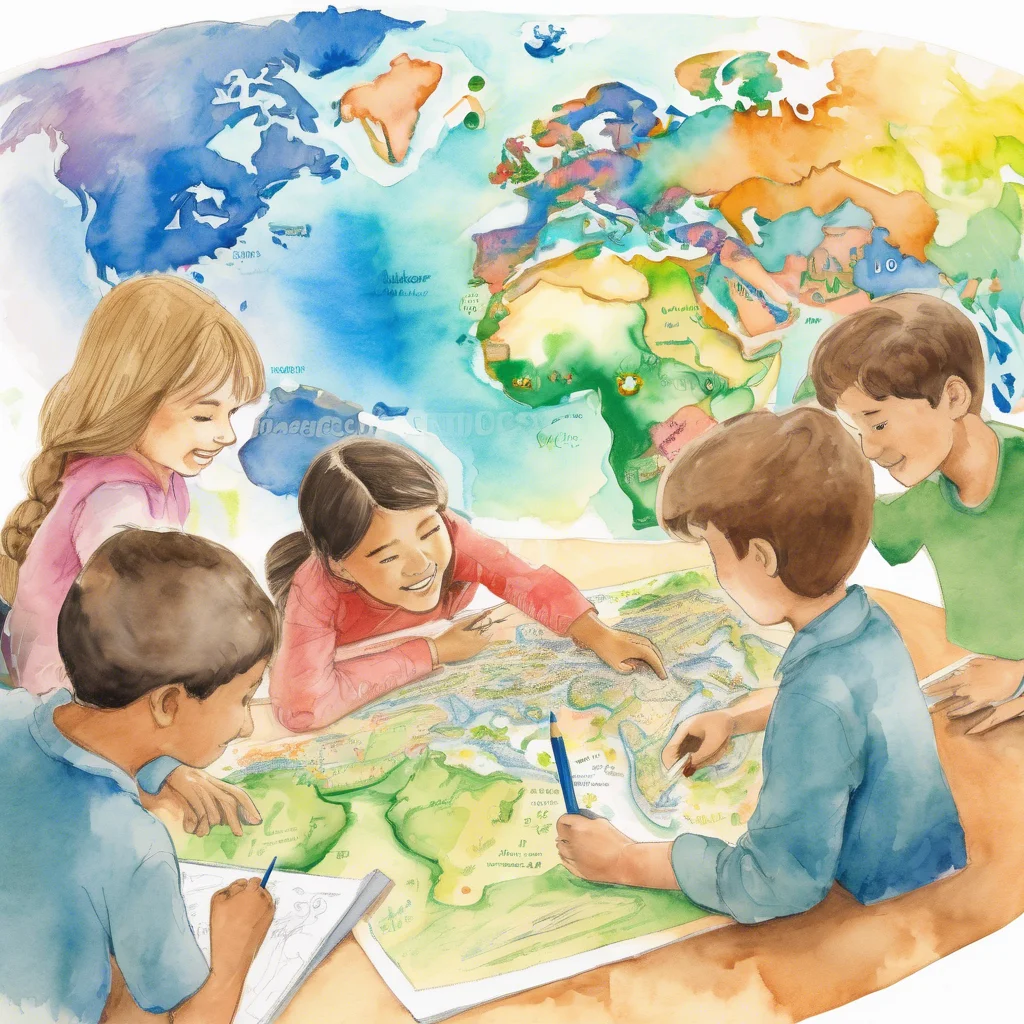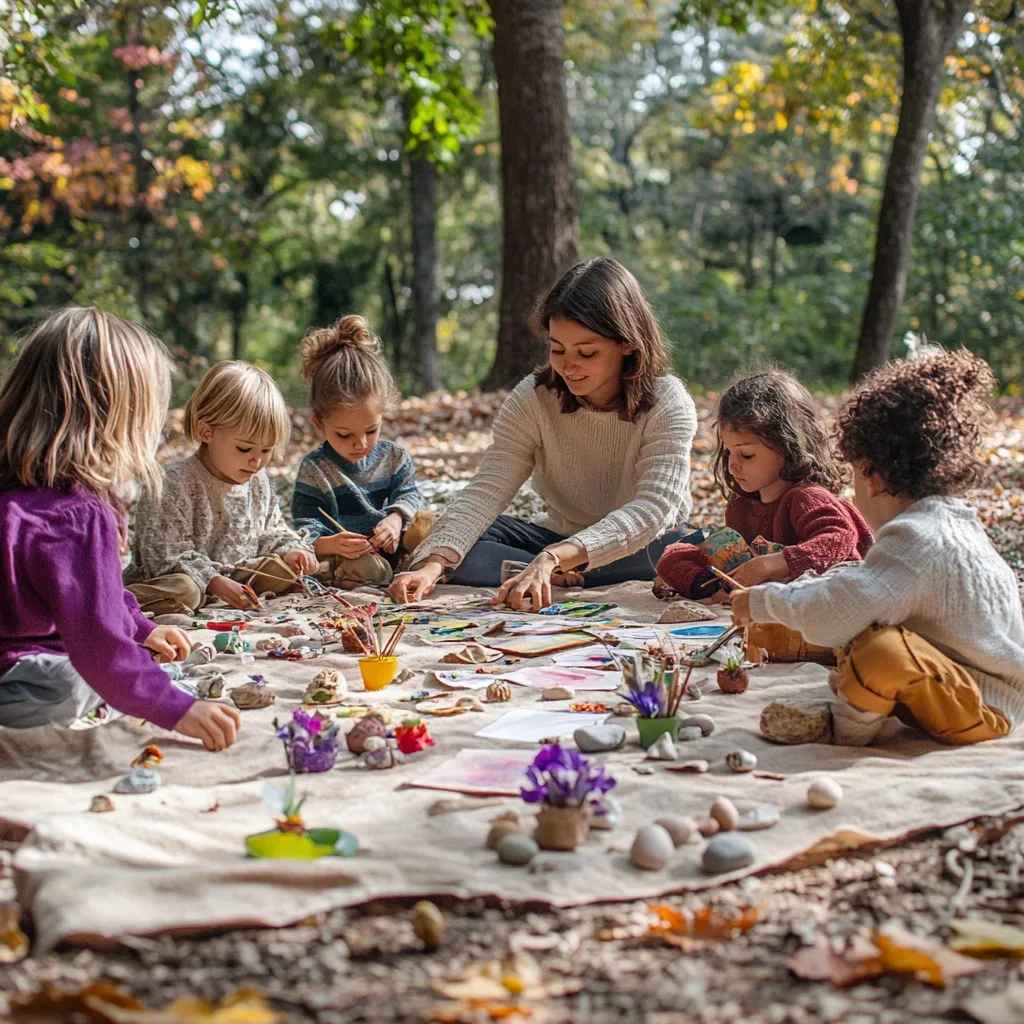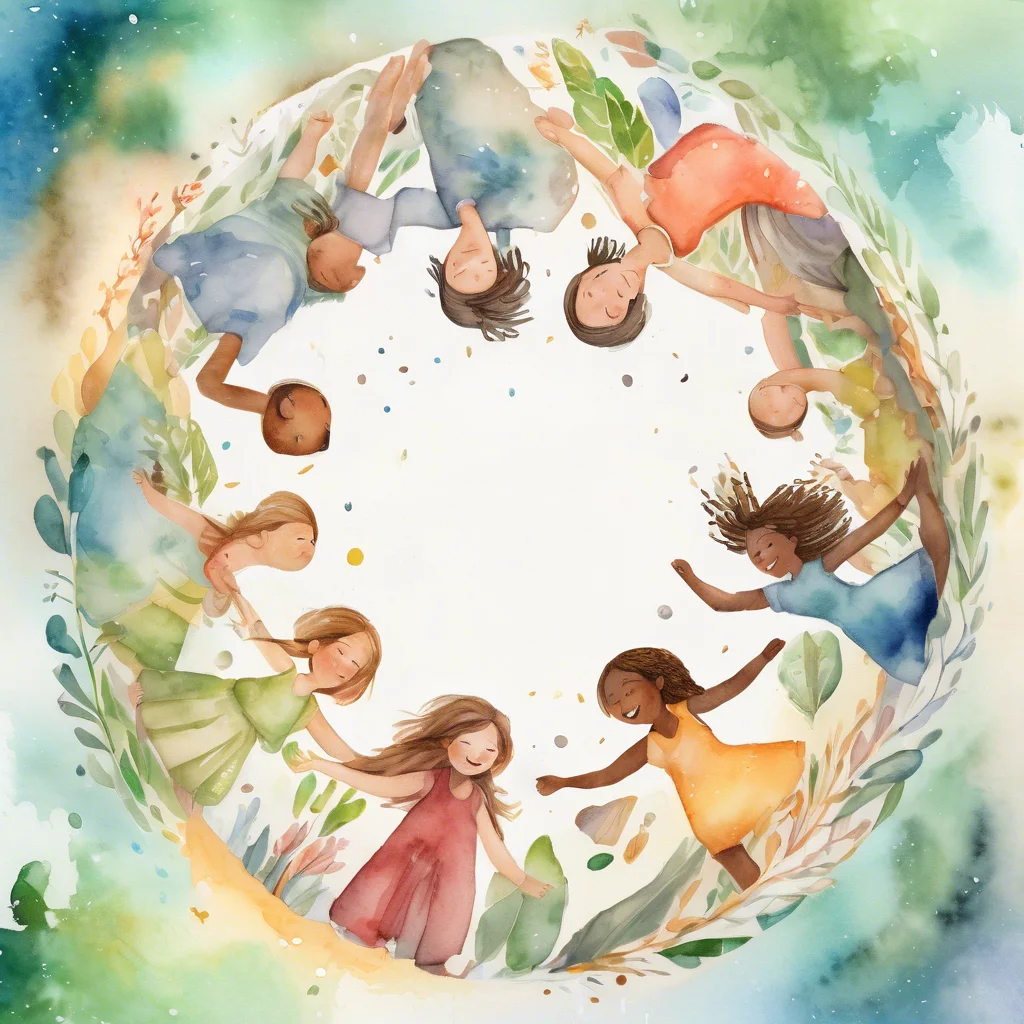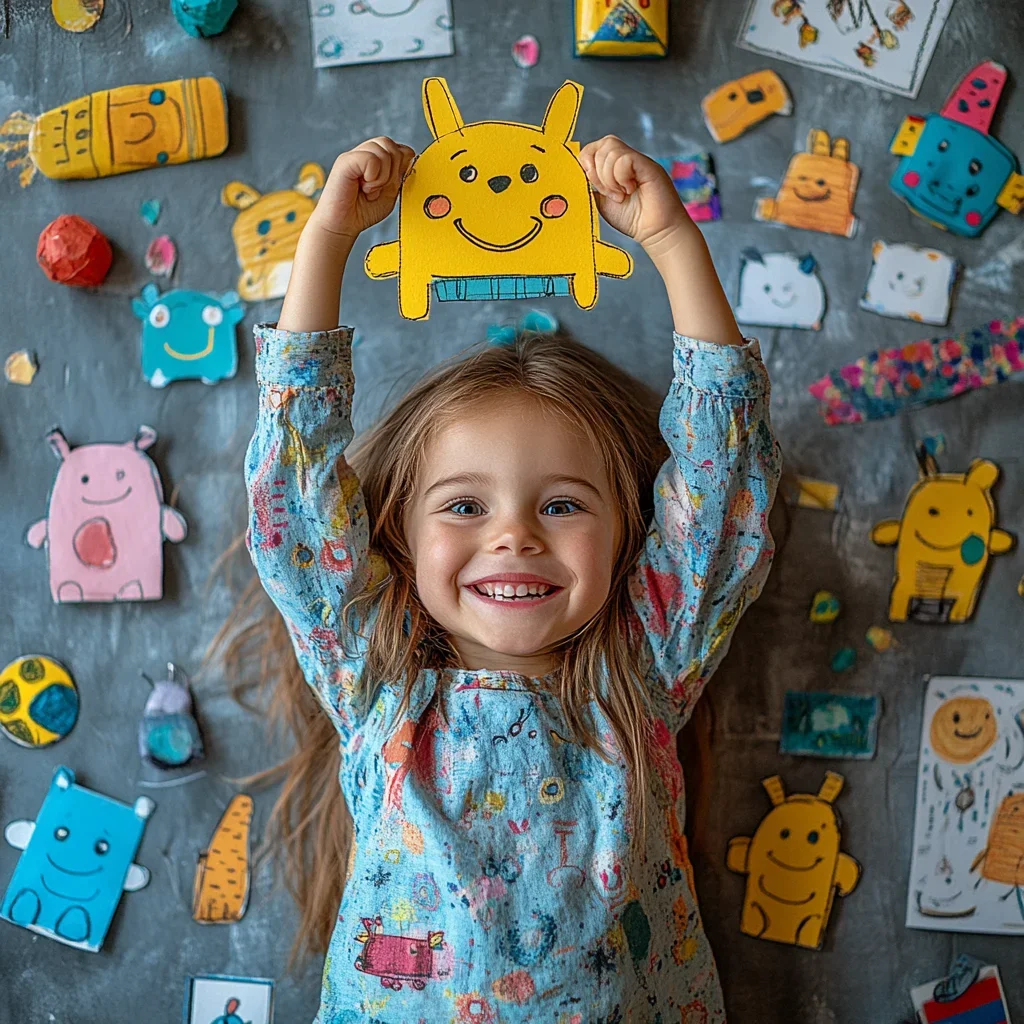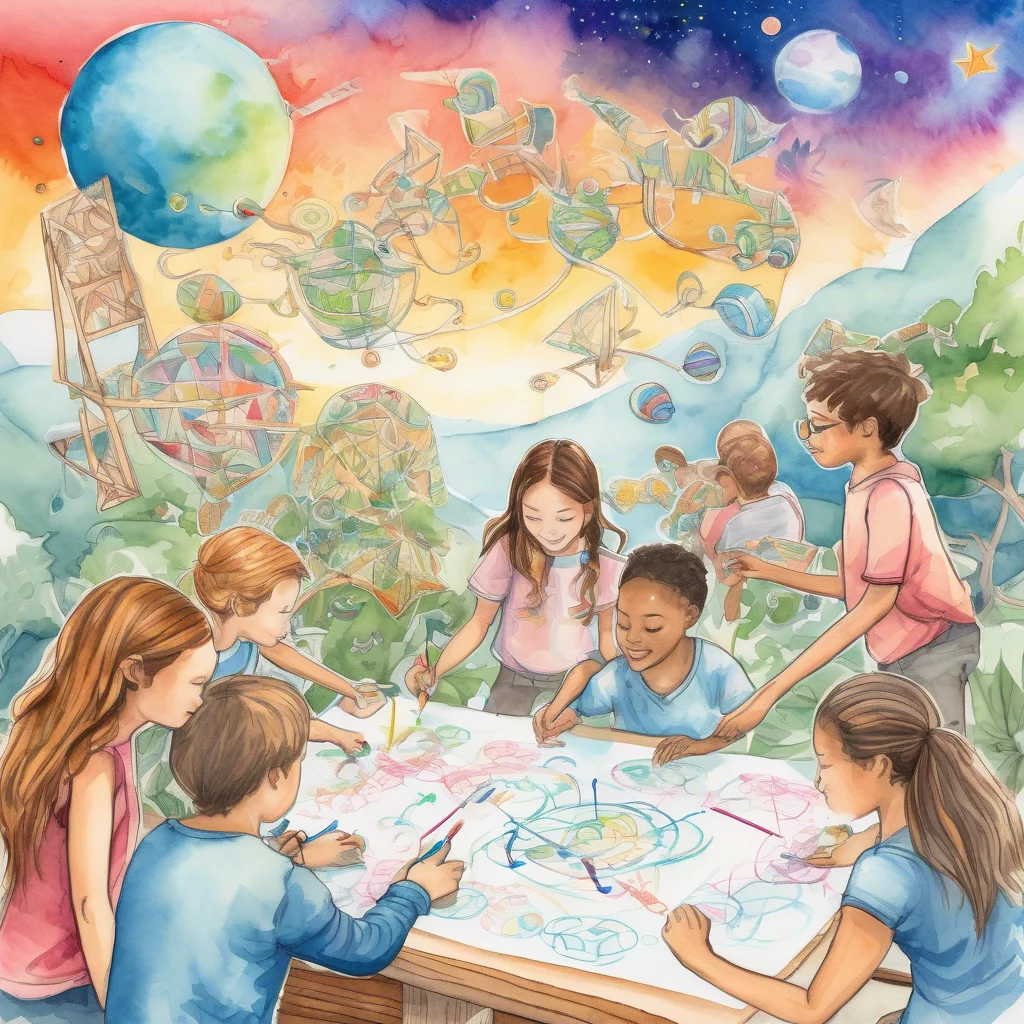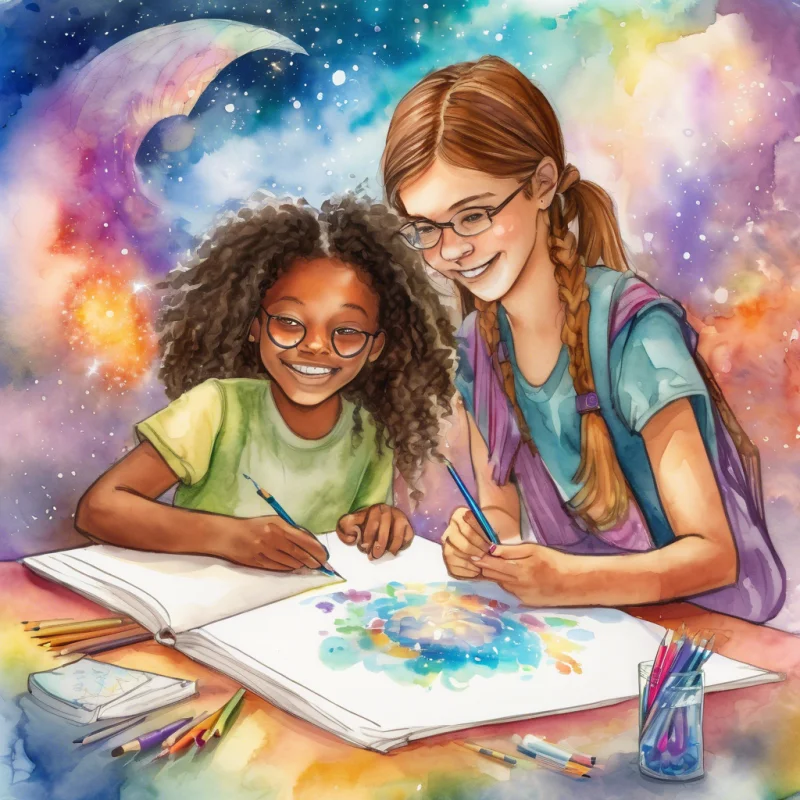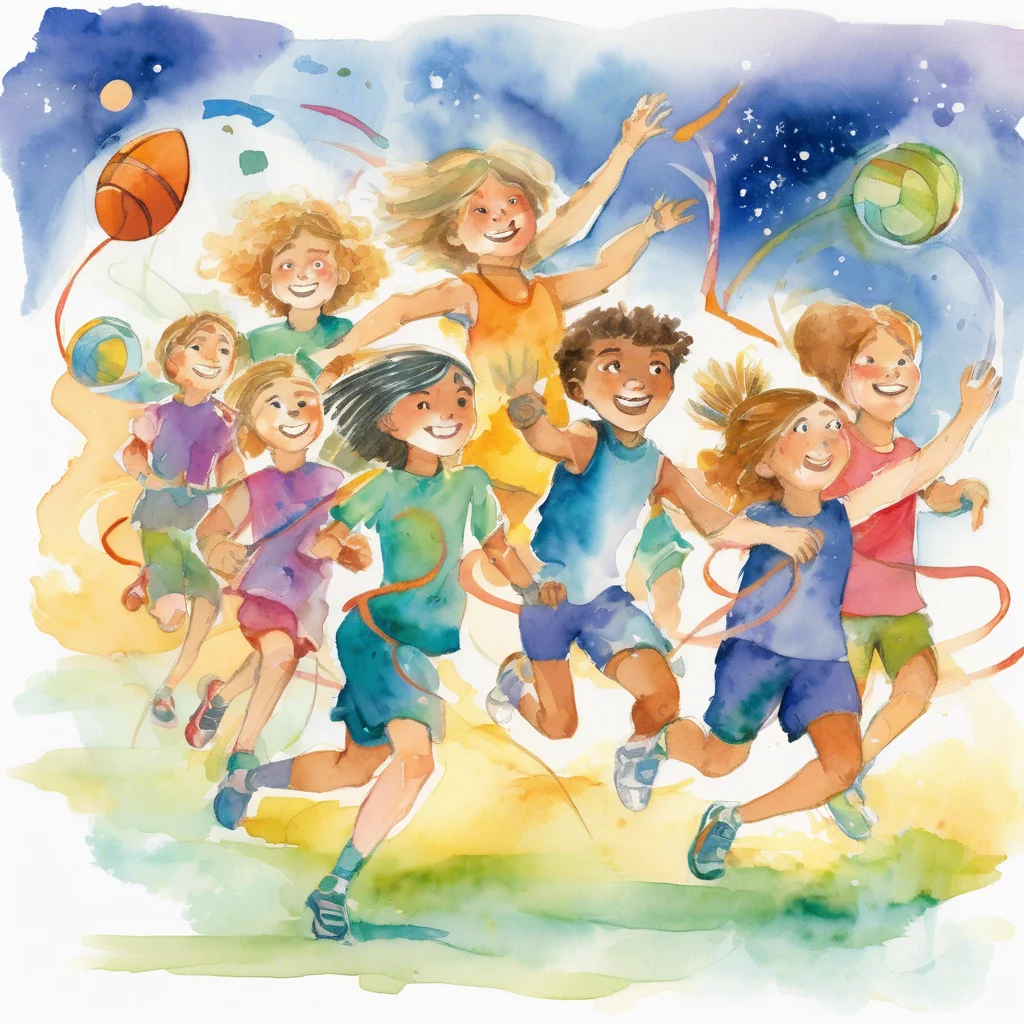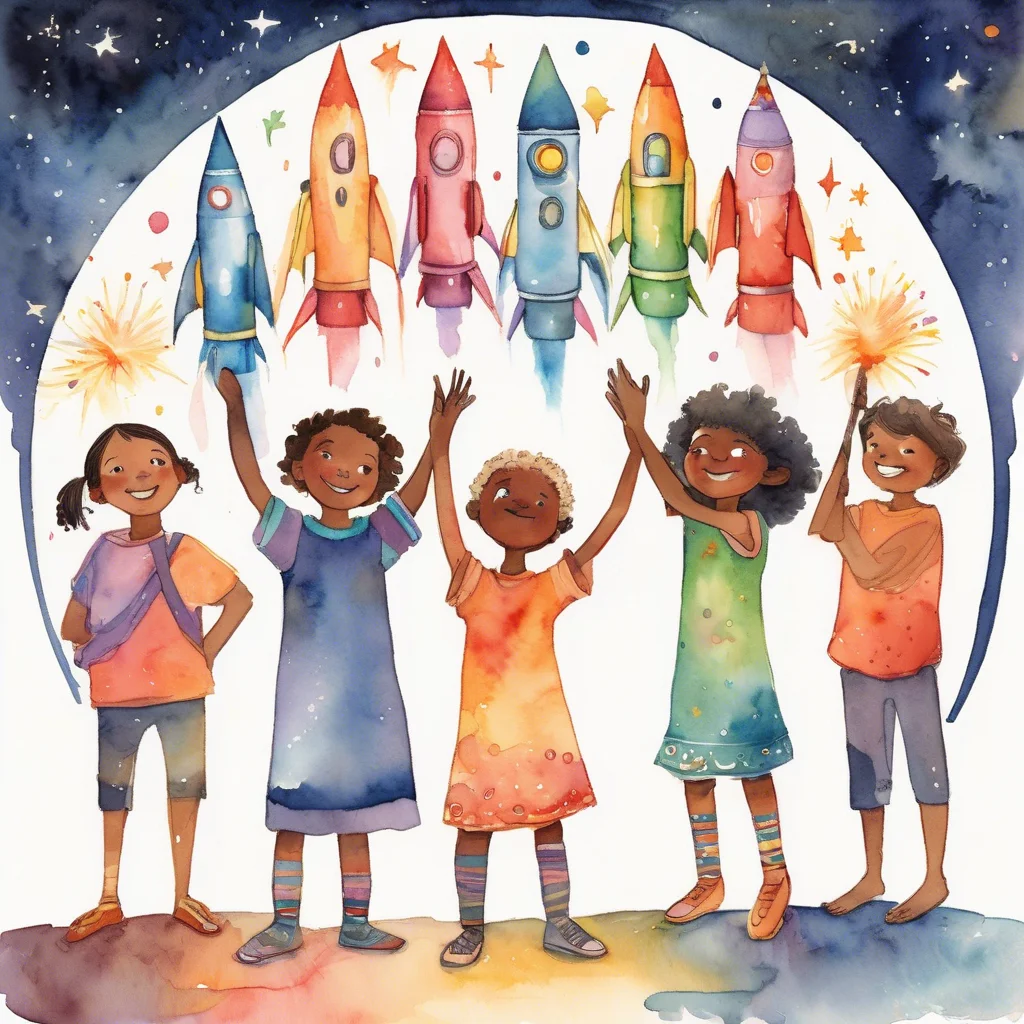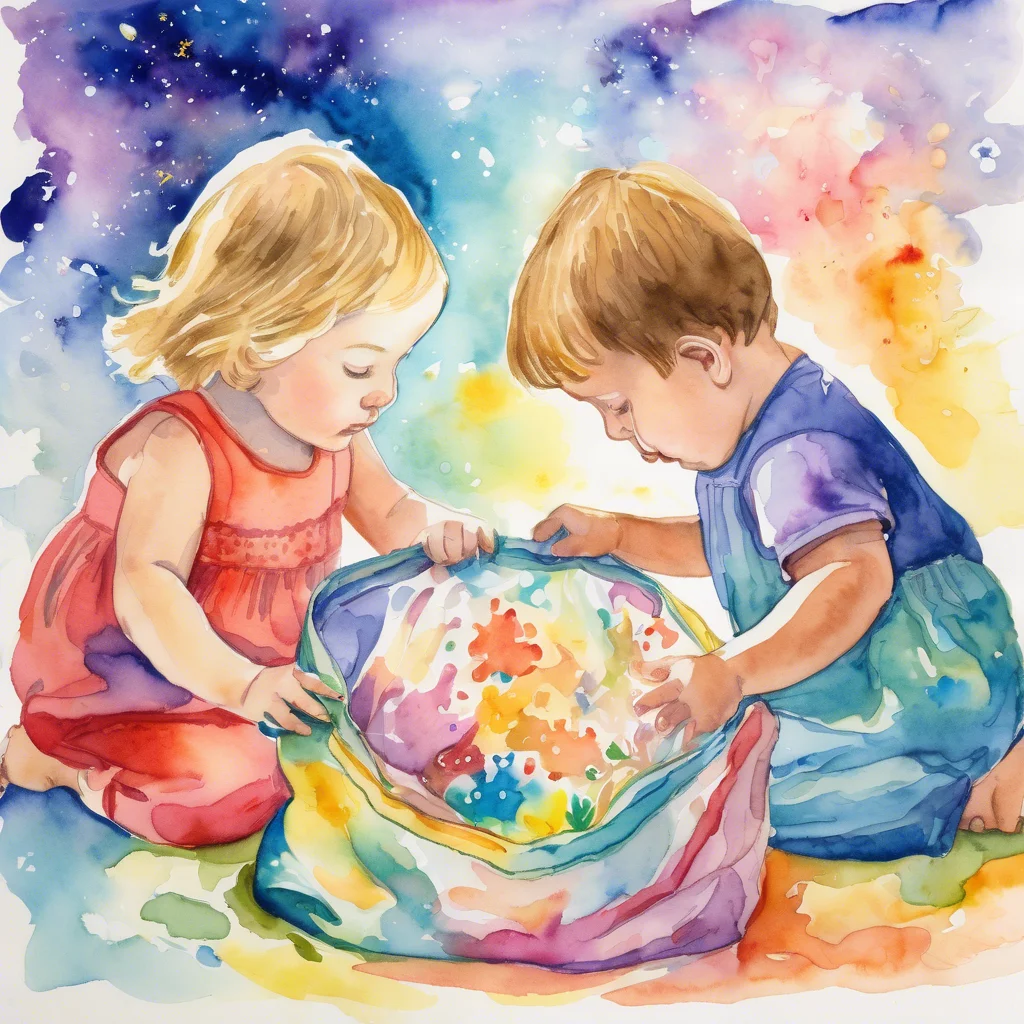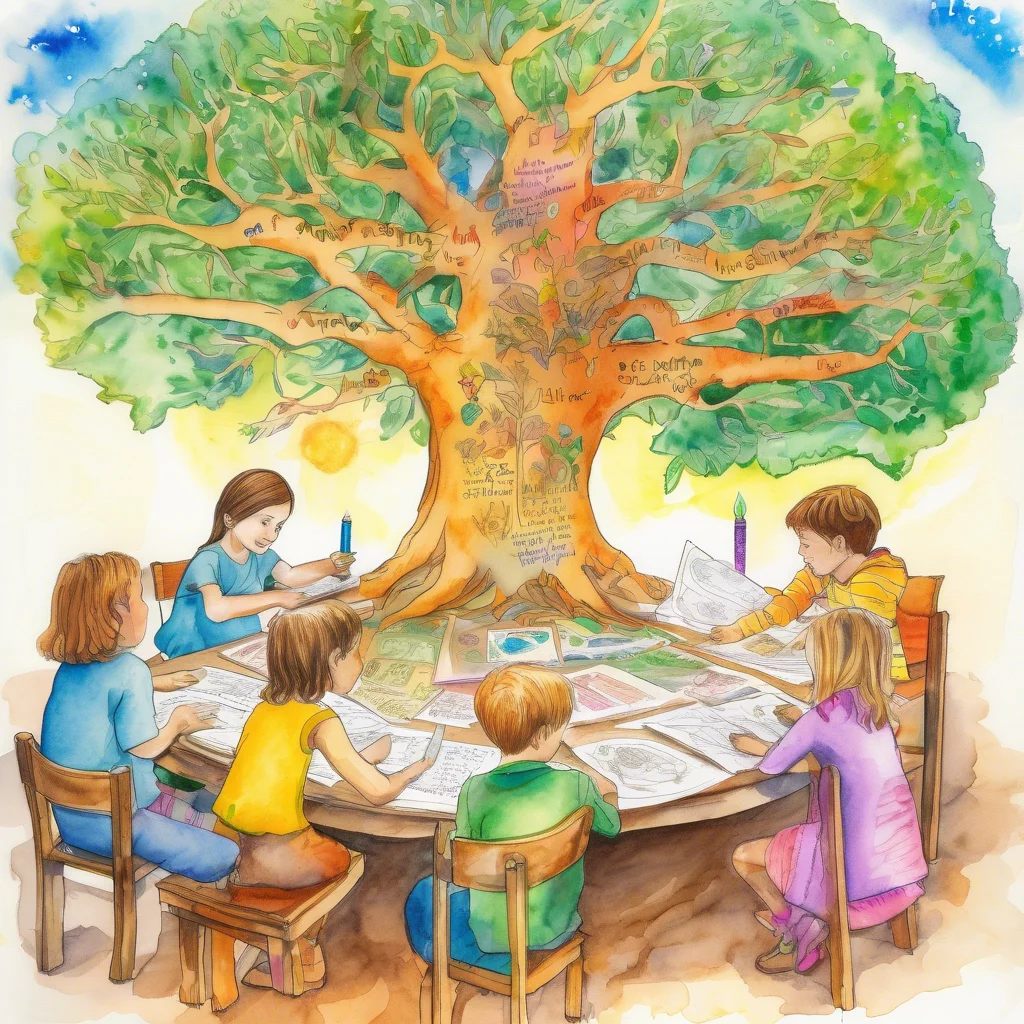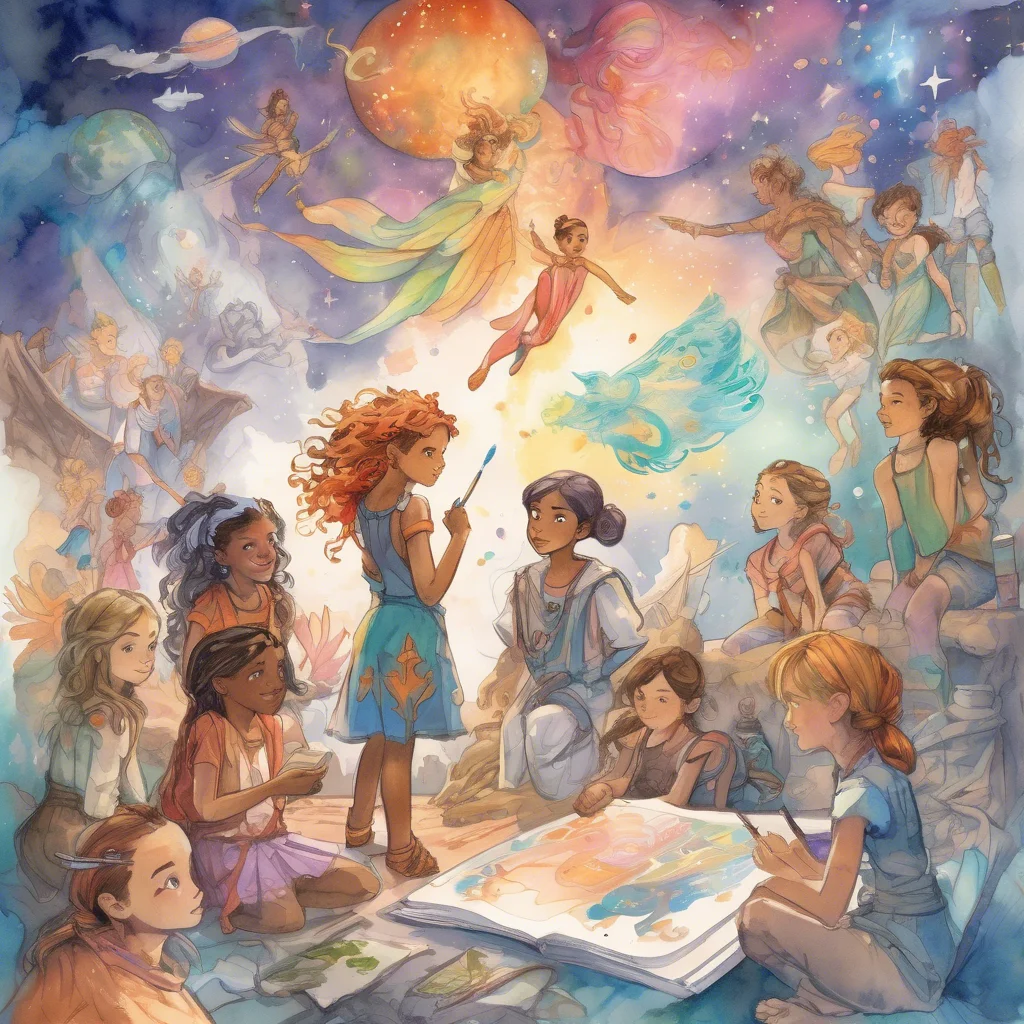Child Development Activities
A global platform designed to support children’s growth, creativity, and learning through meaningful play.

Random Activity:
Enchanted Number Hunt with Technology
Children’s Age: 3–5 years
Activity Duration: 5 – 10 minutes

Latest Activities
Cultural Collage Scavenger Hunt: Global Discovery Journey
Engage children in the "Cultural Collage Scavenger Hunt," a fun and educational activity promoting cognitive development and empathy through exploring...
View ActivityEco-Tech Dance Party: Nature's Rhythms and Tech
The "Eco-Tech Dance Party" activity merges technology, dance, and eco-awareness for an engaging experience. Ideal for children, this activity promotes...
View ActivityWhispers of the World: Around the World Virtual Adventure
Embark on the "Around the World Virtual Adventure," a captivating and educational journey for children to explore various cultures and innovations glo...
View ActivityEnchanted Sensory Nature Walk for Babies (0-6 months)
Explore the Sensory Nature Walk for Babies (0-6 months) to introduce your little one to the wonders of the natural world. This activity supports cogni...
View ActivityNature Explorers: Scavenger Hunt & Art
Let's go on a Nature Scavenger Hunt and Outdoor Art adventure! We will explore nature, collect items, and create beautiful artwork. You will need a ba...
View ActivityEarth's Natural Wonders: Creative Storytelling Journey
This activity is designed for children aged 10-12 to improve self-regulation and communication skills through creative storytelling about Earth's natu...
View ActivityLittle Desk Heroes: Turning Everyday Desk Items into Storytelling Characters
Let's have fun with storytelling using stationery characters! Gather paper, pens, pencils, markers, and stationery items like paper clips and sticky n...
View ActivityTech Adventure Obstacle Course Expedition
Engage children in a tech-inspired obstacle course activity to boost academic and language skills, coordination, and communication. Set up a play area...
View ActivityHoliday Parade: Musical Social Skills Celebration
Get ready for the Holiday Music Parade! This fun activity is perfect for 2 to 3-year-old kids to enjoy music, march in a parade, and have a blast with...
View ActivityHoliday Sensory Bag Exploration – Festive Adventure
Introduce your 12 to 18-month-old to a Holiday Sensory Bag Exploration for sensory play and development. Prepare a bag with gel/oil, holiday items, an...
View ActivityEnchanted Digital Storytelling Adventure
Engage children aged 10 to 14 in the "Digital Storytelling Adventure," a creative experience supporting academic growth, self-regulation, and cultural...
View ActivityHarmony of Motion: Musical Sports Relay Race
The "Musical Sports Relay Race" activity fosters teamwork, cooperation, and sportsmanship in children through an exciting outdoor game blending sports...
View ActivityStarry Skies: Rocket Launch Adventure
"Rocket Launch Adventure" is an outdoor activity that engages children in a fun and interactive experience while promoting communication skills, play ...
View ActivityEnchanted Sensory Bag Exploration Adventure
Engage toddlers aged 18 to 24 months in cognitive development with the "Sensory Bag Exploration" activity. Using simple materials like plastic bags, g...
View ActivityWhispers of the Family Tree of Friendship
Family Tree of Friendship is a creative activity that helps children enhance communication skills, academic development, and understanding of family a...
View ActivityEnchanted Storybook Illustration Adventure
Engage children aged 6 to 10 in the "Storybook Illustration Adventure" for a creative and language-rich experience. Gather drawing materials and set u...
View ActivityLocation
Period
Type
Goal or Purpose
Required Materials

Random Activity:
Strength & Art: Household Item Challenge Gallery
Children’s Age: 3–5 years
Activity Duration: 5 – 10 minutes

Developmental activities
Adaptive Development
Adaptive development refers to the acquisition of skills that enable individuals to effectively and independently manage daily life activities. This includes abilities such as self-care, problem-solving, decision-making, and adjusting to new situations. These skills are essential for personal autonomy and successful interaction within various environments.Academic Development
Academic development refers to the enhancement of skills and knowledge in formal education settings. It includes subjects such as mathematics, science, language, and social studies, as well as critical thinking, problem-solving, and study skills. A strong academic foundation helps individuals succeed in school and beyond.Ecological Awareness
Ecological awareness involves understanding the importance of nature and the impact of human activities on the environment. It includes learning about sustainability, conservation, pollution, and ways to protect natural resources. Developing ecological consciousness helps individuals become responsible global citizens.Empathy Development
Empathy development focuses on understanding and sharing the feelings of others. It includes recognizing emotions, practicing active listening, and responding with kindness and compassion. Strong empathy skills foster better relationships, social harmony, and emotional intelligence.Language Development
Language development refers to the process of acquiring and improving communication skills, including speaking, listening, reading, and writing. It plays a crucial role in cognitive and social development, allowing individuals to express thoughts, understand others, and interact effectively in different environments.Play Skills
Play skills refer to the ability to engage in different types of play, including imaginative, social, and structured activities. Through play, children develop problem-solving abilities, creativity, teamwork, and social interactions. It is an essential part of learning and emotional growth.Self-Care Skills
Self-care skills involve the ability to perform daily tasks independently, such as dressing, grooming, eating, and hygiene. Developing self-care abilities helps build confidence, responsibility, and independence, which are crucial for a child's overall development.Self-Regulation
Self-regulation is the ability to manage emotions, behavior, and impulses in different situations. It includes skills such as emotional control, focus, patience, and adapting to challenges. Developing self-regulation helps improve academic performance, social relationships, and emotional well-being.Cognitive Development
Cognitive development refers to the growth of thinking, problem-solving, and decision-making abilities. It includes memory, attention, logical reasoning, and the ability to learn new concepts. Strong cognitive skills are essential for academic success and lifelong learning.Communication Skills
Communication skills involve the ability to express oneself clearly and understand others effectively. It includes verbal and non-verbal communication, listening skills, and social interactions. Strong communication skills help build relationships and succeed in various life situations.Cultural Development
Cultural development involves understanding and appreciating different traditions, beliefs, and artistic expressions. It includes learning about history, literature, music, and customs from various societies. Exposure to cultural diversity helps build tolerance, respect, and a global perspective.Moral Development
Moral development refers to the process of understanding and applying ethical principles such as honesty, kindness, and responsibility. It helps individuals differentiate between right and wrong and guides them in making fair and respectful decisions in social interactions.Motor Development
Motor development involves the growth of fine and gross motor skills, which are essential for movement, coordination, and physical activity. It includes activities like crawling, walking, running, and hand-eye coordination. Developing motor skills supports overall physical and cognitive growth.Sensory Development
Sensory development involves the enhancement of the five senses: sight, hearing, touch, taste, and smell. It helps individuals process and respond to their environment effectively. Activities that stimulate sensory development contribute to cognitive growth, motor skills, and overall well-being.Social-Emotional Development
Social-emotional development refers to the ability to understand, express, and manage emotions while building relationships with others. It includes self-awareness, empathy, communication, and emotional regulation. Strong social-emotional skills promote positive social interactions and mental well-being.Spiritual Development
Spiritual development involves exploring personal values, purpose, and inner peace. It includes developing a sense of connection with oneself, others, and the world. This process helps individuals cultivate mindfulness, gratitude, and a deeper understanding of life.Physical Development
Physical development refers to the growth and strengthening of the body, including muscles, bones, and overall motor skills. It includes activities such as running, jumping, and balance exercises. Strong physical development supports overall health, coordination, and an active lifestyle.Digital Skills
Digital skills refer to the ability to use technology effectively, including computers, mobile devices, and the internet. It includes basic computer literacy, online safety, and responsible digital communication. Developing digital skills is essential in today's world for education, work, and social interaction.Creative Development
Creative development involves nurturing imagination and originality through artistic expression, problem-solving, and innovation. It includes activities such as drawing, storytelling, music, and creative thinking. Encouraging creativity helps develop self-expression, confidence, and critical thinking skills.Health and Safety Skills
Health and safety skills involve understanding and practicing habits that promote physical well-being and personal security. It includes hygiene, nutrition, first aid, and awareness of potential dangers. Developing these skills ensures a healthier and safer lifestyle.

